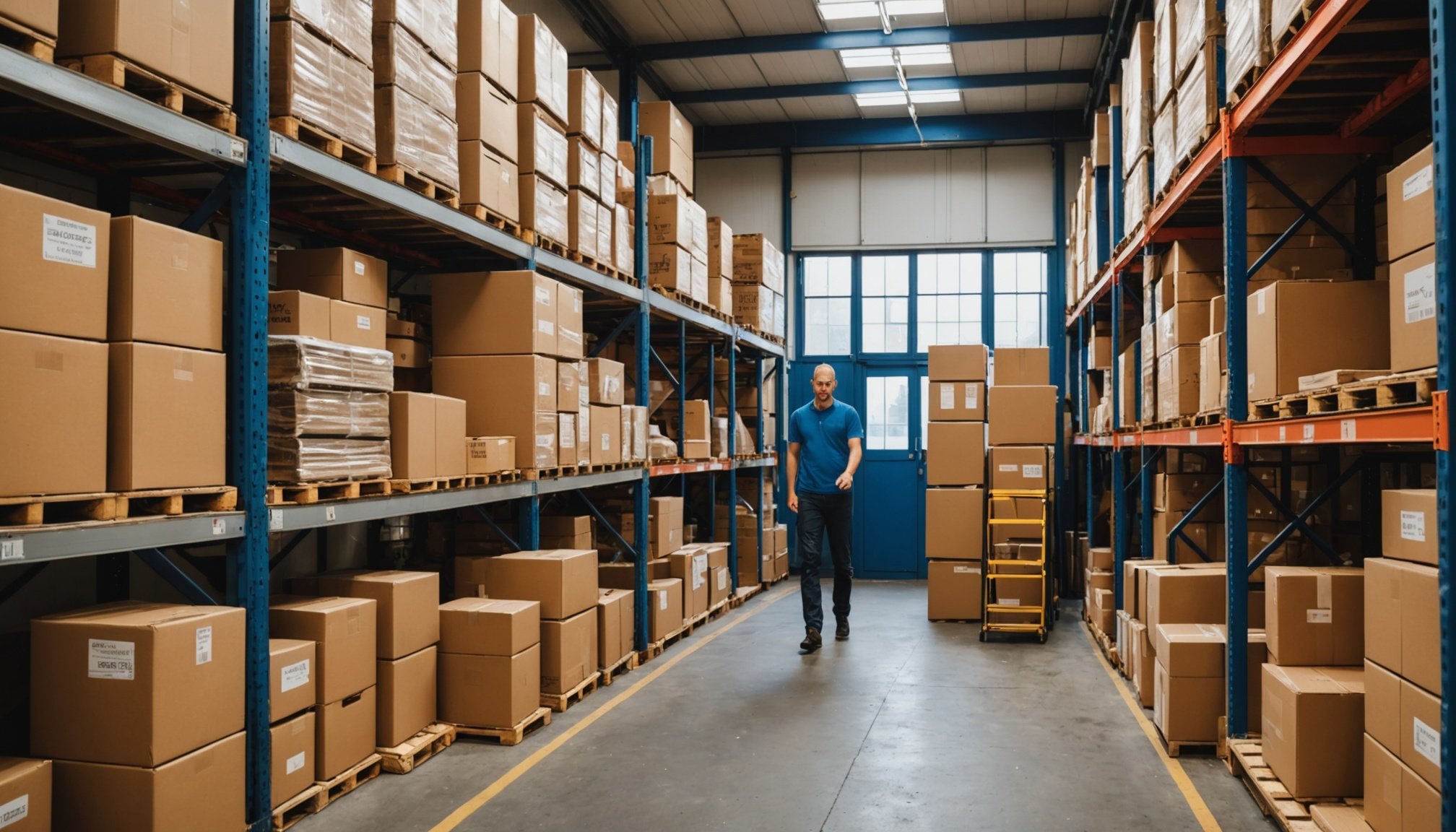Your Ultimate Guide to Seamlessly Importing Household Goods to the UK When Moving from Overseas
Moving to a new country can be both exciting and daunting, especially when it comes to importing your household goods. If you’re planning to move to the United Kingdom from overseas, understanding the process of international shipping and customs clearance is crucial to ensure a smooth transition. Here’s a comprehensive guide to help you navigate this complex process.
Preparing for Your Move
Before you start packing, it’s essential to plan and prepare thoroughly. Here are some key steps to consider:
Also to see : Essential Guide to Notifying Neighbors About Your Move in a UK Community
Assess Your Belongings
Take stock of your household goods and decide what you want to bring with you. Consider the cost of shipping versus the cost of replacing items in the UK. Some items, like large furniture pieces, might be more cost-effective to purchase anew rather than shipping them.
Choose the Right Shipping Company
Selecting a reputable international shipping company is vital. Look for companies that specialize in international removals and have experience with customs regulations in the UK. Here are some factors to consider when choosing a shipping company:
Also to see : Essential Guide: How to Safeguard Sensitive Legal Documents When Moving Homes in the UK
- Experience and Reputation: Check reviews and ask for referrals.
- Insurance Options: Ensure your goods are fully insured against damage or loss.
- Customs Clearance Services: Opt for a company that offers customs clearance services to simplify the process.
- Storage Facilities: If you need temporary storage, ensure the company has secure facilities.
Packing and Labeling
Proper packing and labeling are critical to avoid any issues during transit and customs clearance. Here are some tips:
- Use Sturdy Boxes: Invest in high-quality boxes that can withstand the journey.
- Label Clearly: Label each box with its contents and the room it belongs in.
- Inventory List: Create a detailed inventory list of your goods, including serial numbers for electronics.
Understanding Customs Regulations
Customs regulations can be complex, but understanding them is essential to avoid any delays or additional costs.
What You Need to Know
Here are some key points about customs regulations in the UK:
- Duty-Free Allowances: If you are moving your primary residence to the UK, you may be eligible for duty-free allowances on your personal belongings. However, this is subject to certain conditions, such as the goods being used for at least six months prior to the move.
- VAT and Duties: You may need to pay VAT (Value Added Tax) on certain items, especially if they are new or were purchased recently. Some goods, like antiques or inherited items, may be exempt from VAT.
- Restricted Items: Certain items, such as firearms, explosives, and some types of food, are restricted or prohibited. Ensure you check the UK customs website for the latest information.
Customs Clearance Process
Here’s a step-by-step guide to the customs clearance process:
- Submit Documentation: Your shipping company will need to submit the necessary documentation, including a commercial invoice, packing list, and customs declaration.
- Inspection: Customs officials may inspect your shipment to ensure compliance with regulations.
- Payment of Duties: If duties or VAT are applicable, these will need to be paid before your goods are released.
International Shipping Options
When moving from overseas, you have several shipping options to consider.
Air Freight vs. Sea Freight
- Air Freight: Faster but more expensive. Ideal for smaller shipments or items that need to arrive quickly.
- Sea Freight: More cost-effective for larger shipments but takes longer.
Container Options
- Full Container Load (FCL): Suitable for large shipments where you need a full container.
- Less Than Container Load (LCL): For smaller shipments where you share a container with other consignees.
Managing VAT and Duties
Understanding how VAT and duties work can help you plan your move more effectively.
VAT Exemptions
If you are transferring your residence to the UK, you may be eligible for VAT exemptions on certain goods. Here are some conditions:
- Used Goods: Goods that have been used for at least six months prior to the move are generally exempt from VAT.
- New Goods: New goods may be subject to VAT, but there are some exemptions for items like antiques or inherited goods.
Duty-Free Allowances
Here’s a detailed list of what you might be able to bring duty-free:
- Personal Effects: Clothing, furniture, and other personal effects used for at least six months.
- Gifts: Gifts valued under a certain threshold (currently £390) are duty-free.
- Inherited Goods: Goods inherited from a deceased person are generally duty-free.
Practical Tips and Advice
Here are some practical tips to make your move smoother:
Plan Ahead
- Book Early: Book your shipping company well in advance to ensure availability.
- Pack Wisely: Pack essential items separately so they are easily accessible when you arrive.
Keep Records
- Inventory List: Keep a detailed inventory list of your goods.
- Receipts: Keep receipts for all your goods, especially new items.
Seek Professional Help
- Customs Broker: Consider hiring a customs broker to handle the customs clearance process.
- Shipping Insurance: Ensure your goods are fully insured against damage or loss.
Example of a Successful Move
To illustrate the process, let’s consider an example:
Case Study: Moving from Singapore to the UK
Sarah, a marketing professional, is moving from Singapore to London for a new job. She decides to use an international shipping company that specializes in customs clearance. Here’s how she prepares:
- Assessing Belongings: Sarah decides to bring her furniture, electronics, and personal effects.
- Choosing a Shipping Company: She selects a company with experience in shipping to the UK and offers customs clearance services.
- Packing and Labeling: Sarah packs her goods carefully and labels each box clearly.
- Customs Documentation: Her shipping company handles the customs documentation, ensuring all necessary forms are filled out correctly.
When Sarah arrives in the UK, her goods are cleared through customs without any issues, thanks to the thorough preparation and the expertise of her shipping company.
Table: Comparing Shipping Options
Here is a comparative table to help you decide between different shipping options:
| Shipping Option | Cost | Time | Suitability |
|---|---|---|---|
| Air Freight | High | Fast (1-2 weeks) | Small shipments, urgent items |
| Sea Freight | Low | Slow (4-6 weeks) | Large shipments, non-urgent items |
| FCL | Moderate | Varies | Large shipments needing full container |
| LCL | Moderate | Varies | Small shipments sharing a container |
Quotes from Experts
Here are some quotes from experts in the field to provide additional insights:
- “When moving internationally, it’s crucial to choose a shipping company that understands the customs regulations of the destination country. This can save you a lot of hassle and potential costs down the line.” – John Smith, International Shipping Consultant.
- “Proper packing and labeling are key to ensuring your goods arrive safely and are cleared through customs without any issues. It’s also important to keep detailed records of your inventory.” – Jane Doe, Customs Broker.
Moving to a new country is a significant undertaking, but with the right preparation and knowledge, you can make the process much smoother. Here are the key takeaways:
- Plan Thoroughly: Assess your belongings, choose the right shipping company, and pack wisely.
- Understand Customs Regulations: Know what you can bring duty-free, and understand the VAT and duties applicable to your goods.
- Seek Professional Help: Consider hiring a customs broker and ensure your goods are fully insured.
- Keep Records: Maintain detailed records of your inventory and receipts.
By following these guidelines, you can ensure that your household goods are imported seamlessly into the UK, making your transition to your new home as stress-free as possible.











